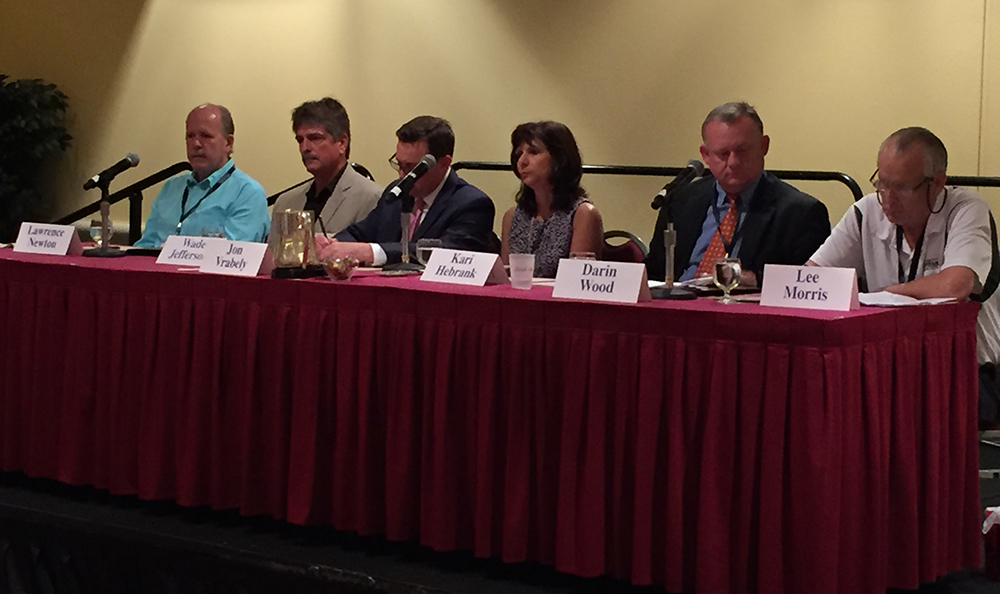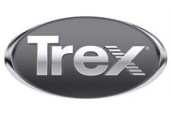Are dealers and distributors getting bypassed and discarded? What is loyalty worth? A half dozen LBM experts sparred over those issues during a panel discussion today that laid bare concerns of an industry in transition.
The comments offered during the session in Orlando at the Florida Building Material Association’s annual convention stemmed in part from Masonite’s recent launch of Advisar, an internet-based subsidiary in Tampa that sells custom-built doors directly to central Florida builders, bypassing the company’s traditional channels.
“I’m not buying a Masonite product any more,” said Wade Jefferson, president of Beaver Building Products, based in Orlando. “I’m a small independent, and I think even some of the bigger yards, the chains, have a problem with that.”
“It chaps my fanny,” Lee Morris, president of Durham Building Materials in Jacksonville, told the group. “I don’t like it at all.”
But the supply chain always evolves, and generally it’s technology that’s the disruptor, asserted Jon Vrabely, CEO of Huttig. “Companies figure out ways to get products to the users of those products in the most efficient and effective ways,” he continued. “Sometimes companies win in that process and sometimes companies lose.”
As for Masonite’s initiative, Vrabely said, “I think the jury is still out regarding … whether the juice was worth the squeeze.”
“When a company makes a decision that it’ll bypass you, does that give you a green light to search for other avenues?” asked Don Magruder, CEO of Leesburg, Fla.-based Ro-Mac Lumber & Supply and the panel’s moderator.
“It does,” Vrabely replied, “but it’s not necessarily linked to a decision of a manufacturer that may have figured out a way to get from Point A to Point C, skipping B. … We figure out ways to bring value to categories of products. And in categories where we don’t bring value, we don’t pursue them. … You’re trying to buck the evolution of the channel. We focus on what we can control and we try to focus on those that we can bring value to. Sometimes we win and sometimes we venture out into products that don’t work.”
Concerns also have risen among independent dealers that the decimation of distributors and dealers since the Great Recession, coupled with the spike in demand created by this fall’s hurricanes, is breaking up the supply chain. Vrabely disagreed.
“I actually believe the supply chain has gotten stronger as a result of the threat recession,” he asserted. ”It’s Darwinism: those that were strong survived. [The supply chain] is more efficient today in general across the country. The impact of the Houston and Florida storms is obviously going to have a short- to medium-term impact on the supply chain in those areas. But I think the supply chain is healthy. It’s the breadth of products that we sell. It will continue to evolve. It strives to be more efficient.”
Darin Wood, CEO of Woodford Plywood, Albany, Ga. acknowledged the challenges dealers face today in acquiring plywood, particularly CDX. “People are watching inventory levels closely,” he said. The jump in demand caught people off guard. We feel over the next couple of months it’ll still be somewhat tight, but by December more supplies will be available and prices will go down. By that time, the supply will be out there and we’ll be at a new norm. Pricing for the next six to months will be higher.”
“What if you get a call from a customer who is new to you and asks for two or three truckloads?” asked Morris. “I’ve gotten calls from people who asked for eight to 10.”
“You know the old saying, ‘Dance with the one who brought you?” Wood replied. “You get a lot of new friends at times like this. But I’m a believer in loyalty.”
Lawrence Newton, executive chairman of the U.S. Lumber group, headquartered in Atlanta, said he believes two-step distributors will persist because customers need easy access to inventory (plus financing, Wood noted) and the number of products sourced from around the world continues to grow.
“The supply chain is going to evolve, and there’s nothing that people in this room can do about it,” Newton argued. “Amazon and Alibaba are forcing the world economy to do things differently. They are going to force the big retailers to have an online process, and so many products that people can’t believe will go from manufacturer to customer will do so.
“We think there are things we do that provide value that are hard to do: buy a product, hold inventory, make it available,” Newton said. “And if you can go around us, you should. If you can buy a truckload of cedar, you should. … All we’ve got to work on is how to be a better distributor.”



